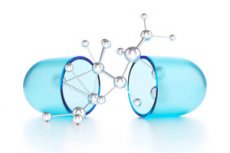New publications
Antimalarial drug promises to be effective in treating polycystic ovaries
Last reviewed: 02.07.2025

All iLive content is medically reviewed or fact checked to ensure as much factual accuracy as possible.
We have strict sourcing guidelines and only link to reputable media sites, academic research institutions and, whenever possible, medically peer reviewed studies. Note that the numbers in parentheses ([1], [2], etc.) are clickable links to these studies.
If you feel that any of our content is inaccurate, out-of-date, or otherwise questionable, please select it and press Ctrl + Enter.

A team of metabolic scientists and molecular biologists from Fudan University's Zhongshan Hospital, working with colleagues at other institutions in China, have found that some antimalarial drugs show promise in treating polycystic ovary syndrome (PCOS) in women.
In their study, published in the journal Science, they tested the drug dihydroartemisinin (a type of artemisinin) in mice and then in a small group of women with PCOS. Elisabeth Stener-Wiktorin of the Karolinska Institutet published a commentary article in the same issue of the journal in which she described the work and suggested that it could change the way PCOS is treated in the future.
PCOS is a condition in which women experience abnormal growth of cysts on their ovaries, leading to symptoms such as abdominal pain, irregular menstrual cycles, excessive hair growth, acne and often obesity. The symptoms of this condition are usually attributed to the production of abnormally high levels of androgens.
The causes of PCOS are unknown and there is no cure, but several therapies have been developed to ease the symptoms. In this new study, a team from China found that administering a class of drugs commonly used to treat malaria reduced symptoms in both mice and women.
A few years ago, another team of researchers found that giving a drug called artemisinin to obese people helped turn their white fat tissue into beige fat, which was easier to burn through exercise. This led the new team to think that such drugs might be useful for people with PCOS, since other studies have shown a link between brown fat levels and PCOS.
The researchers first gave test mice dehydroepiandrosterone, a type of androgen, to mimic PCOS. They then gave them artemisinin and found that it prevented testosterone levels from rising and cysts from developing.
Encouraged by their results, the team conducted a small clinical trial involving 19 patients with PCOS, each given artemisinin three times a day for three months. In the end, 12 patients reported that their menstrual cycles became more regular, and almost all patients had lower levels of testosterone in their blood. In addition, the development of cysts was reduced.
